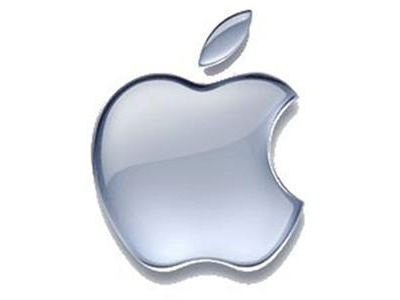Apple Aims to Build Own Streaming-Media Service, Reports Say
Apple may be constructing its own content-delivery network in an effort to implement its own streaming channels for products like Apple TV.

Apple's biggest technological breakthrough this year may not be a new gadget or service; in fact, most consumers won't even be aware of it.
As reported by The Wall Street Journal and StreamingMediaBlog, evidence indicates that Apple may be constructing its own online content-delivery network (CDN), possibly in an effort to implement its own streaming channels for products like Apple TV.
CDNs are the unsung heroes of streaming Web content. Although few consumers stop to think about these networks, they're the reason data-intensive services such as Netflix and Pandora are feasible in the first place. CDNs are third-party companies that run massive server farms in order to connect users with their desired content.
This means that a streaming video service, for example, can focus on acquiring and displaying content instead of the logistics involved in delivering it. And it might mean more content for Apple TV, iTunes and Apple mobile devices.
MORE: Top 10 Online Streaming Video Services
At present, it's an open secret that Apple uses two CDNs, Akamai and Level 3, to deliver content via iTunes and Apple system updates. Over the last few months, Apple has hired a number of networking experts and formed a new internal group, presumably to work on building its own CDN.
While an Apple-controlled CDN is interesting on an industry level, it will also have repercussions for consumers — both existing Apple customers and those Apple seeks to bring into the fold.
Get instant access to breaking news, the hottest reviews, great deals and helpful tips.
"Apple might be interested in creating its own CDN primarily to offer a full end-to-end experience around distribution of premium-quality video content," Jeremy Toeman, CEO of digital media firm Dijit Media, told Tom's Guide.
Right now, Apple generally offers content a la carte via iTunes, but controlling its own CDN could prove advantageous if Apple wanted to embrace the subscription model for digital music and video.
Industry sources have rumored the advent of a new Apple TV. A CDN run by Apple would be advantageous for such a product, but it's not likely that Apple would embrace this strategy for the sake of one product.
"I don't see why a new Apple TV hardware would be a requirement," Toeman said. "If anything, the opposite is true — they'd want to reach as many consumers as possible, not be constrained by a new device."
Whether or not Apple has any particular interest in new hardware, constructing and maintaining a CDN is a massive undertaking. It's not likely that Apple would go to all that trouble simply to maintain the status quo.
More likely, the company is turning its eyes toward a subscription service of some kind. Selling individual songs, movies and books is profitable, but as Netflix, Hulu Plus and Amazon Prime Instant Video have demonstrated, selling ongoing subscriptions is profitable again and again, month after month.
"With literally hundreds of millions of screens under [Apple's] control, [it] seems like more video services makes good sense," Toeman said. "Consumers are clearly demonstrating comfort with paying for one or more monthly subscription packages, so I think Apple is very well positioned to be in the space."
Building a self-sustaining CDN takes months, if not years. Still, if Apple succeeds, it could pursue a chunk of the streaming content market even more aggressively.
Follow Marshall Honorof @marshallhonorofand on Google+. Follow us @tomsguide, on Facebook and on Google+.

Marshall Honorof was a senior editor for Tom's Guide, overseeing the site's coverage of gaming hardware and software. He comes from a science writing background, having studied paleomammalogy, biological anthropology, and the history of science and technology. After hours, you can find him practicing taekwondo or doing deep dives on classic sci-fi.
 Club Benefits
Club Benefits





